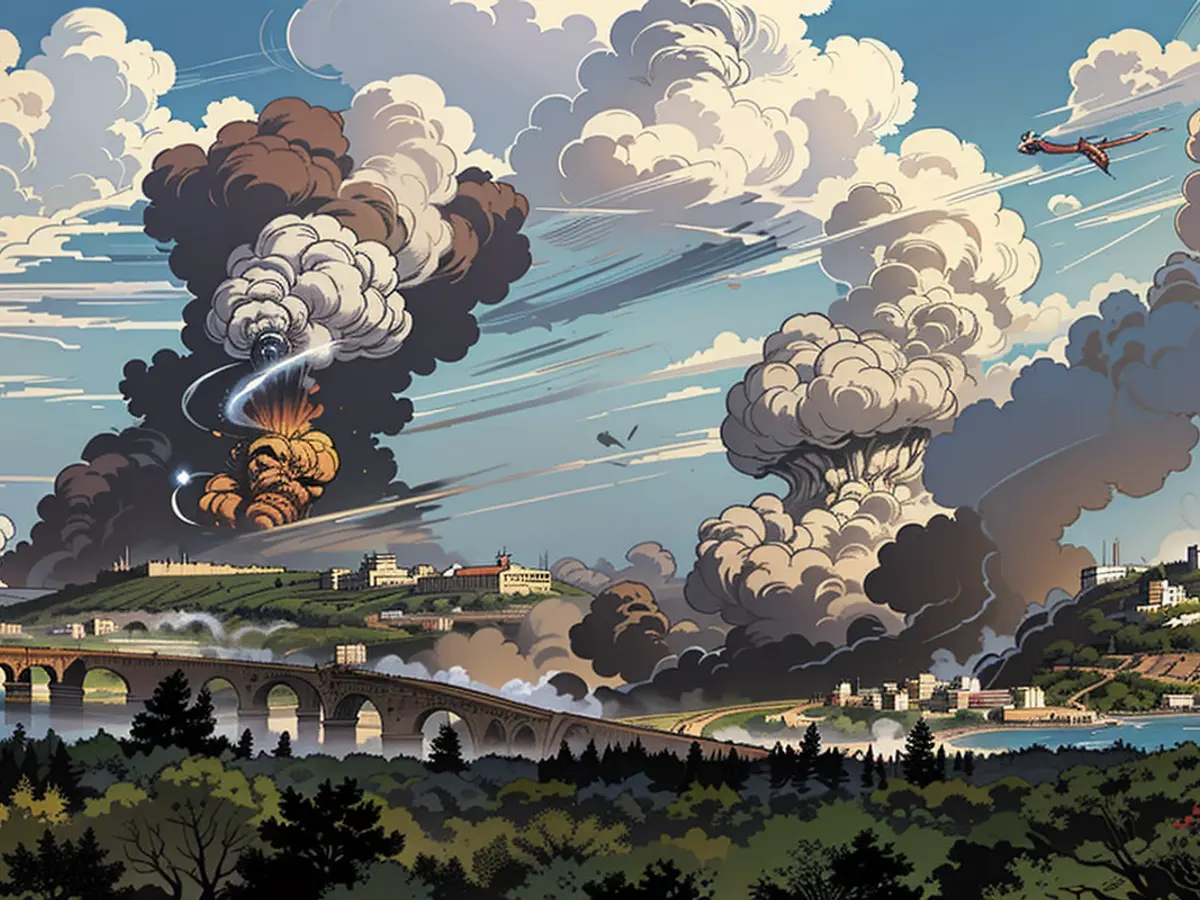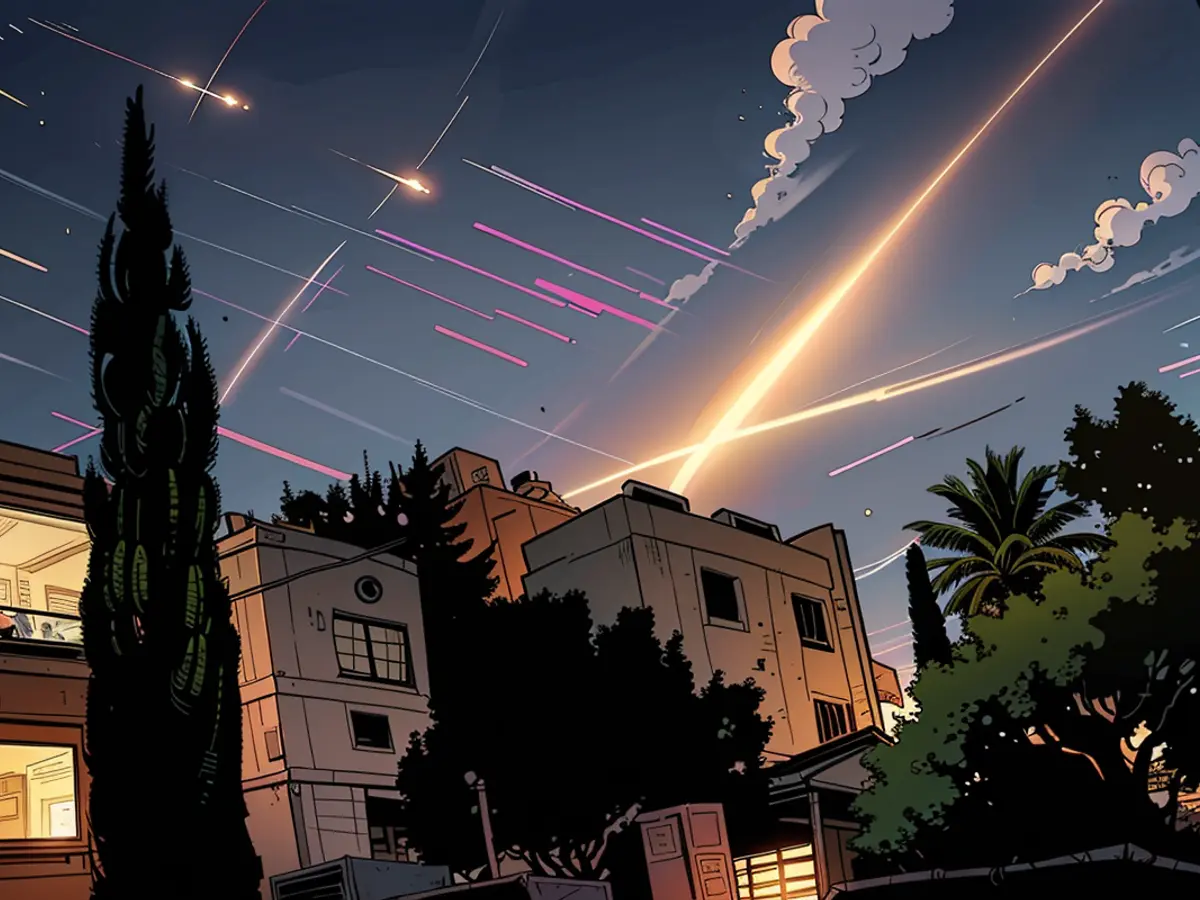Escalating conflict has become regionally apparent. Israel's subsequent actions carry significant weight.
After approximately a year, numerous events have unfolded. Following Iran's largest ever ballistic missile attack against Israel, a day later when Israeli forces engaged in combat with Hezbollah fighters in Lebanon, a regional conflict seems imminent. The main concern now is whether this conflict will escalate or deescalate.
Israel's leaders are at a crossroads. When Iran launched a missile attack in April, in retaliation for an Israeli strike on Iran's consulate in Damascus, Israel exhibited restraint, retaliating only by targeting an Iranian air defense installation.
However, Iran's attack on Tuesday night was unprecedently violent. Although some bases were struck, the damages were minimal, with most missiles being intercepted. One fatality, a Palestinian man wounded by shrapnel in the Israeli-occupied West Bank, was the sole casualty.
Israel now faces a predicament, as one former high-ranking Israeli military official told CNN, "Do you respond to the intention or the consequences?"
Iran's government has "no interest whatsoever in a larger conflict," government spokeswoman Fatemeh Mohajerani stated Wednesday, revealing that they opted against retaliating following the assassination in July of Hamas political leader Ismail Haniyeh in Tehran, despite popular demand.
Israeli Prime Minister Benjamin Netanyahu has experienced a remarkable political comeback following a series of assassinations in the Middle East. Israel's aerial assault on Lebanon has left the civilian population devastated, evicting over 1 million people, but has achieved the temporary neutralization of a persistent threat to the north. Why not seize this opportunity to weaken the patron state itself, Iran?
"The elimination of Nasrallah is a necessary prerequisite for achieving our goals: the safe return of northern residents to their homes and shifting the regional balance of power for years," Netanyahu declared in the wake of a significant attack in Beirut last month that claimed Hezbollah leader Hassan Nasrallah.
Two days later, he addressed the Iranian people, stating, "When Iran is eventually liberated – and that moment will arrive sooner than most anticipate – everything will change."
His stance aligns with the opinions of the Israeli public as well. Former Prime Minister Naftali Bennett is spearheading the push for an aggressive response to Tehran's attack, proposing an assault on Iran's nuclear facilities, which the US and others blame for a weapons program, a claim Iran has long denied.
"History sometimes comes knocking at your door, and you have to seize the moment," Bennett told CNN on Tuesday. "If we don't act now, I don't see it happening ever again."

Iran's two primary means of challenging Israel – Hamas in Gaza and Hezbollah in Lebanon – "are currently incapacitated," Bennett claimed. "It's like a boxer in the ring without arms for a few minutes. This is the time to strike, as Iran is currently highly vulnerable."
This response, however, entails significant risks. Although Hezbollah has undoubtedly been weakened, its full capacity remains uncertain. If Iran decides to construct a bomb, the US government estimates it could do so within weeks. Short of a nuclear option, Tehran has other methods to further pressure Israel and its allies. Escalating responses might spiral out of control and drag allies into the conflict.
The senior Israeli military official explained that "there are always different perspectives." Bennett's view is that "it's time to neutralize the entire evil axis. We began with Hamas, then Hezbollah. It is now Iran's turn, perhaps even Syria."
The official insisted they had no direct knowledge of Israel's plans but requested anonymity to discuss sensitive matters.
"Last night, it seemed to me like an overwhelming response was imminent," they said. "Today, I am receiving messages that they are pausing to consider their options."
A more measured response would entail targeting a military facility, as Iran did in Israel on Tuesday.
"You could strike infrastructure, in the same manner as the Israeli air campaign on the Houthi-controlled port of Hodeidah on Sunday," the former official suggested. "National exports of oil, or anything else."
The mystery lies in the extent to which Israel's most vital ally – the United States – will back its response.
"We have made it clear that there will be severe consequences for this attack, and we will assist Israel in making that clear," US National Security Adviser Jake Sullivan stated on Tuesday. "It is too soon for me to share any public assessment or expectations as to the Israelis or our advice to them."

The world is closely watching the events unfolding in the Middle East, as Israel and Iran seem to be on a delicate balance. Despite Iran's attack on Israeli targets, their government has stated no interest in a larger conflict.







